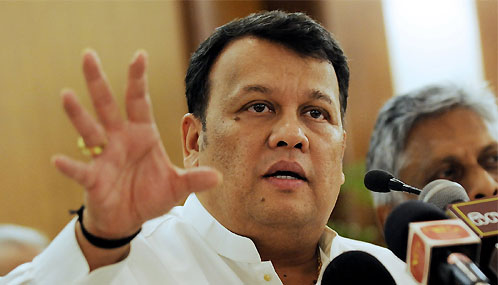|
State Department Human Rights report on Sri Lanka:
Wanting in credibility
Mar 16, 2010 | |
 Issuing a release in response to the March 11, 2010 release of the 2009 Country Report on Human Rights Practices pertaining to Sri Lanka compiled by the Bureau of Democracy, Human Rights and Labour of the United States’ Department of State, the Ministry stated that the basis of many assertions are ‘reports’ that are mainly attributed to anonymous “NGOs”, “international sources”, “human rights groups”, “observers” and other unnamed sources. It says in the past, few (if any) of these allegations have been made known to the Government of Sri Lanka. Accordingly, the Government’s position, reaction or response to these assertions are not reflected in the report, making it a less than objective assessment. A handful of specific incidents and occurrences are also referred to in the report, but, generally the report consists of vague, non-specific and unverifiable information. The report unfortunately does not reflect the fact that the defeat of terrorism after nearly 30 years of conflict now creates an environment within which the human rights of all Sri Lankans can be safeguarded, protected and advanced. Neither does it contain any reflection that the Government of Sri Lanka has acknowledged areas that require greater focus in the protection of human rights. The 2008 State Department report did acknowledge that Sri Lanka did submit itself to the Universal Periodic Review at the Human Rights Council, but in reference to 2009 unfortunately does not state that it has taken definite and concerted action to improve the situation as a consequence. The report also clearly sets out to speculate on opposition claims of a LTTE pact and a bribe given by President Rajapaksa’s campaign. This is totally unacceptable and smacks of a political agenda being played out. This is further proof of the unprofessional and subjective nature of the report. Despite the report being released only in March, the report also fails to make mention of the decision by the President to seek a fresh mandate from the people nearly two years in advance of required elections. While the election, which gave a resounding 17 percent margin of victory to the President, itself did not take place during the reporting period, the decision on such a democratic initiative is undoubtedly a significant development, worthy of mention. Courtesy: Daily News
|
|
|
| |